In part two of his contributing article, Newman alumnus James R. Macias ’81, shares about his wine connoisseur adventures, reading and writing in the world of retirement.
Read Part I: Into the Great Wide Open – Navigating Retirement Without a Compass

To date, my wife Deb and I have embarked on a handful of driving vacations primarily to visit family but also touring national parks and other scenic locations in the Western half of the country.
While in Northern California we took advantage of that region’s venerable wine industry, sampling wines from various producers and purchasing several bottles to enjoy back home in Colorado. We’d visited these viticulture areas a handful of times in years past, but somehow the wines tasted better this time around knowing I didn’t have to go back to work at the end of the week.
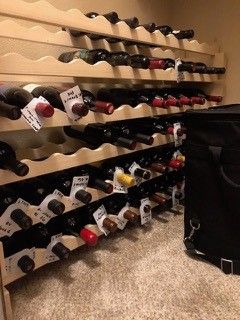
Speaking more broadly of wine, I’m very much an oenophile, now with time abundant to pursue interests in wine education and appreciation. It’s a subject too broad and complex to master except by the most dedicated, though there is ample room for growth and satisfaction for an amateur like me.
Much has been written on this subject over the centuries, with Roman author and statesman Pliny the Elder (AD 23 – 79) considered by many to be the first substantial wine writer and critic.
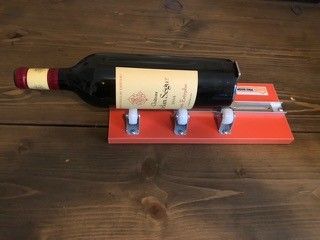
I’m neither critic nor writer, not officially anyway, but I do have a good feel for the styles that Deb and I prefer, and it’s my merry task to maintain a moderately sized cellar for us and our guests.
Associated with wine is an abundance of history, geography, civilization, art, literature, science and mysticism to stir the imagination. And, of course, sensible limits on consumption are wise for obvious reasons.
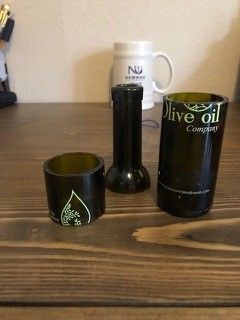
Pliny himself noted, “Nothing is more useful than wine for strengthening the body and also more detrimental to our pleasure if moderation be lacking,” while English physician, writer and clergyman Thomas Fuller declared, “Bacchus hath drowned more men than Neptune.”
Caveats aside, well-chosen wine can elevate just about any meal, and one need not be in the chips to afford an agreeable bottle. It’s a beautiful beverage with potential to bring people together.
Reading and writing
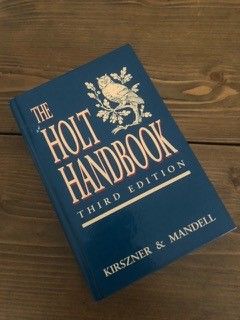
I’ve begun a bit of writing as evidenced by this article and in parallel started something that may eventually become a book, though I don’t currently refer to it as such because that feels too much like a commitment, and I may not have the chops to pull it off.
I’ve read several books over the past eight months, mostly non-fiction but also a few contemporary novels, a couple of classics and a bit of Sci-fi. Deb has been a member of two book clubs for a few years and very much enjoys those sessions.
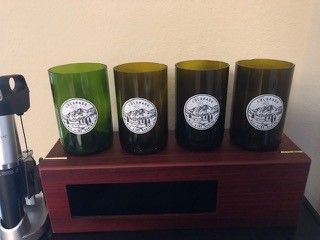
Taking a cue from her I recently joined an existing Newman-based book club where my first assigned to me was a novel penned by Newman alumna Claire Vanderpool. A most excellent read it was followed by a very good virtual discussion amongst the small gathering. This was for me an admirable beginning so I will stick with the club to see where it leads.
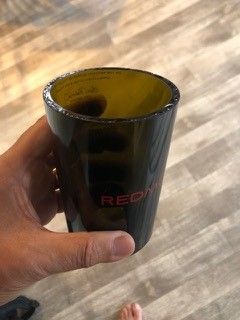
As for hobbies and other pursuits, these have been developing organically but with some links to the past including my time at Newman. A few are connected to my academic training and industrial experience in chemistry, and in some cases I am returning to ground I might have trod as a lad.
The aforementioned love of wine has led to several technical books and papers describing the molecules responsible for color, flavor, astringency, aromaticity and other important aspects of this nectar.
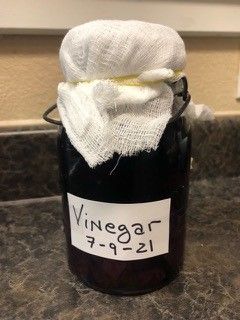
Quite often we have wine leftover from dinner and via trial and error I have learned to make very nice red wine vinegar from this overage. With exposure to air the ethanol in wine will slowly oxidize to acetic acid, which along with a much larger portion of water and trace components constitutes what we call vinegar. However, this process is slow and to be practical must be facilitated by bacterial microorganisms.
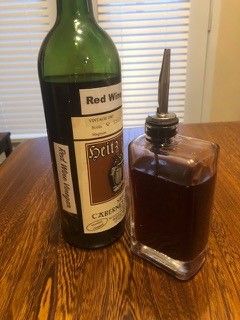
The bugs, referred to as acetic acid bacteria (family Acetobacteraceae, genus Acetobactor) occur naturally but it helps to supercharge one’s vinegar brew with a homemade or purchased and reusable mother liquid containing a high concentration of these little guys.
Making vinegar is a well-known industrial process but is also a long-standing art practiced by many craftspeople. I humbly submit that my red wine vinegar is pretty good stuff, I swear!
Continue to Part III: Making candles, music and art
Submit your contributor story
Interested in sharing your blog-style story for the chance to be featured on the Newman Today news site?


